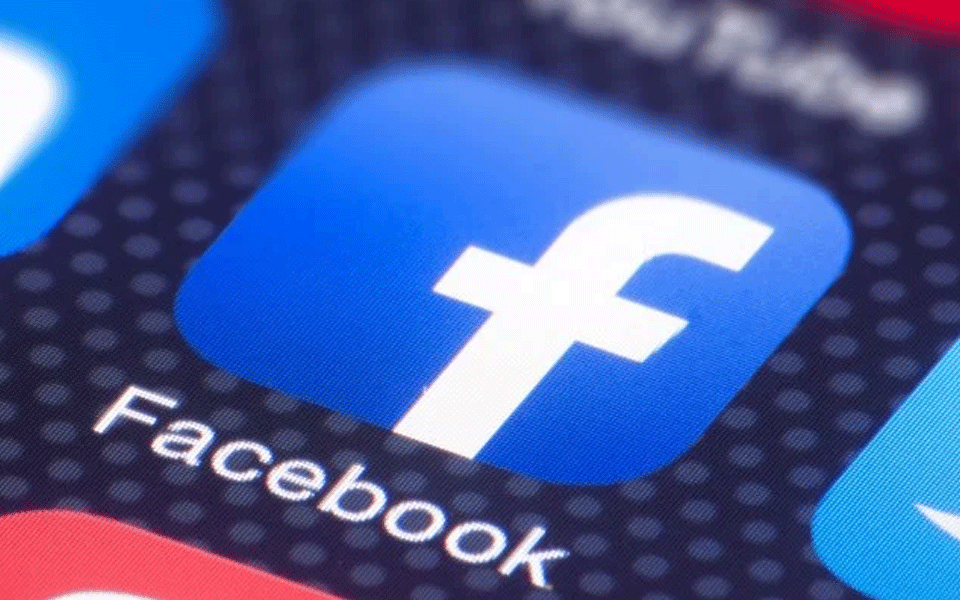Canberra: In a shocking act of retaliation Thursday, Facebook blocked Australians from sharing news, a milestone in the increasingly frantic jockeying between governments, media and powerful tech companies that one Australian minister called an assault on a sovereign nation and abuse of power.
Australia's government condemned the decision, which also prevented some government communications, including messages about emergency services, as well as some commercial pages. The digital platforms fear that what's happening in Australia will become an expensive precedent that larger countries will follow.
Facebook took the drastic action because the House of Representatives passed legislation that would make Facebook and Google pay for Australian journalism, said Treasurer Josh Frydenberg, who added that he was given no warning before Facebook acted. The legislation needs to be passed by the Senate before it becomes law.
Facebook's actions were unnecessary, they were heavy-handed and they will damage its reputation here in Australia, Frydenberg said.
Facebook said the proposed Australian law fundamentally misunderstands the relationship between our platform and publishers who use it.
This is an assault on a sovereign nation, Health Minster Greg Hunt told Parliament. It is an assault on people's freedom and, in particular, it's an utter abuse of big technologies' market power and control over technology.
Both Google and Facebook have threatened retaliation if Australia created the law, which the government contends will ensure media businesses receive fair payment for their journalism being linked on those platforms.
Australia's proposal requires a negotiation safety net through an arbitration panel. The digital giants would not be able to abuse their dominant negotiating positions by making take-it-or-leave-it payment offers to news businesses for their journalism. If a news business refused to budge, the panel would make a binding decision on a winning offer.
Facebook had threatened to block access to Australian news rather than pay for it under the proposed News Media Bargaining Code. Google had threatened to remove its search functions from Australia because it said the proposed law was unworkable.
But Google's threat has faded as it quickly stitches up licensing content deals with Australian media companies under its own News Showcase model.
Rupert Murdoch's News Corp. announced a wide-ranging deal with Google on Wednesday. Major Australian media organization Seven West Media reached a deal earlier in the week. Their rival Nine Entertainment is reportedly close to its own pact, and state-owned Australian Broadcasting Corp. is in negotiations.
The government accused Facebook of endangering public safety by temporarily blocking state emergency services messaging on a day when there were severe fire and flood warnings in various parts of Australia.
The Bureau of Meteorology's weather warnings, a Hobart women's shelter and the Betoota Advocate, a satirical website named after an Australian ghost town, were among those surprised to find their content blocked at least temporarily.
Communications Minister Paul Fletcher said he had told Facebook that the government expected access to its pages to be restored.
The fact that there are organizations like state health departments, fire and emergency services ... who have had their Facebook pages blocked, that's a public safety issue, Fletcher said.
Facebook said in a statement: Any pages that are inadvertently impacted, we'll look to reverse.
Health Minster Greg Hunt said the Royal Children's Hospital in Melbourne still didn't have its feed fixed more than eight hours later. Frydenberg said he had constructive discussions with Facebook chief executive Mark Zuckerberg after the content blocking began.
He did explain to me that they had concerns with aspects of the code, and it goes to the interpretation of some of its elements. And he will come back to me with some more considered views, Frydenberg said.
Frydenberg said his government remained committed to the code that was delivering generous payment deals with Google for Australian media.
Other countries are watching, but also Google and Facebook and other digital giants are very focused on what it means, as far as a precedent goes, for other countries, Frydenberg said.
Let the Truth be known. If you read VB and like VB, please be a VB Supporter and Help us deliver the Truth to one and all.
Johannesburg (AP): A 32-year-old suspect has been arrested in connection with a mass shooting which claimed the lives of 12 people including three children at an unlicensed pub earlier this month, South African police said on Monday.
The man is suspected of being one of the three people who opened fire on patrons in a pub at Saulsville township, west of South Africa's capital Pretoria, killing 12 people including three children aged 3, 12 and 16.
At least 13 people were also injured during the attack, whose motive remains unknown.
According to the police, the suspect was arrested on Sunday while traveling to Botlokwa in Limpopo province, more than 340 km from where the mass shooting took place on Dec 6.
An unlicensed firearm believed to have been used during the attack was recovered from the suspect's vehicle.
“The 32-year-old suspect was intercepted by Limpopo Tracking Team on the R101 Road in Westenburg precinct. During the arrest, the team recovered an unlicensed firearm, a hand gun, believed to have been used in the commission of the multiple murders. The firearm will be taken to the Forensic Science Laboratory for ballistic analysis,” police said in statement.
The suspect was arrested on the same day that another mass shooting at a pub took place in the Bekkersdal township, west of Johannesburg, in which nine people were killed and 10 wounded when unknown gunmen opened fire on patrons.
Police have since launched a search for the suspects.
South Africa has one of the highest homicide rates in the world and recorded more than 26,000 homicides in 2024 — an average of more than 70 a day. Firearms are by far the leading cause of death in homicides.
The country of 62 million people has relatively strict gun ownership laws, but many killings are committed with illegal guns, according to authorities.
According to police, mass shootings at unlicensed bars are becoming a serious problem. Police shut down more than 11,000 illegal taverns between April and September this year and arrested more than 18,000 people for involvement in illegal liquor sales.





